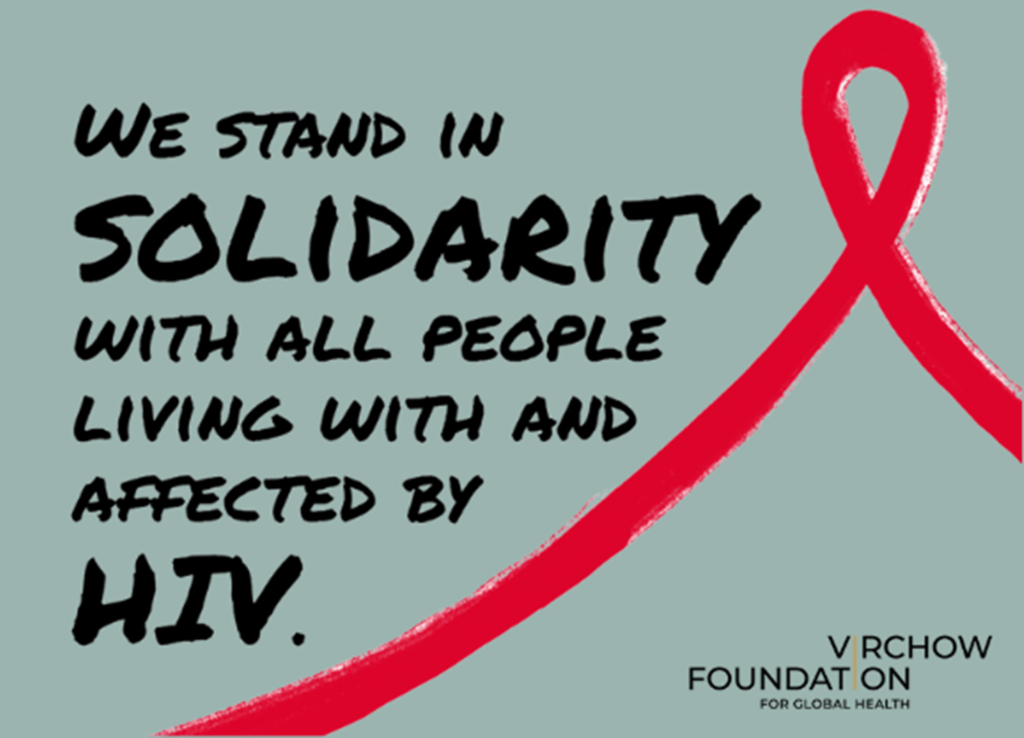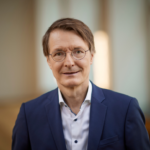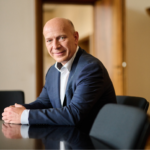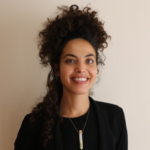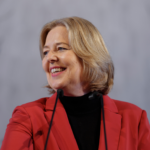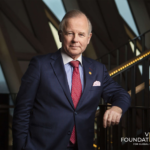World AIDS Day is commemorated each year on December 1 and was originally created in 1988 by the World Health Organization (WHO). Thirty-four years ago, it was the first ever global health day, with the purpose of facilitating the exchange of information among national and local governments, international organisations, as well as individuals. As of today, it is one of the most widely recognised international health days. Worldwide, people on this day unite, show support, call to action and raise awareness about the HIV/AIDS pandemic, for those affected and those who lost their lives. It is an opportunity to educate about the status of the pandemic and encourage progress in prevention, treatment and care globally.
What is HIV/AIDS?
HIV (human immunodeficiency virus) is a retrovirus that infects cells of the immune system and destroys or impairs their function. It weakens people’s defense against many infections, therefore affected individuals gradually become immunodeficient. An immune system is categorized as deficient if fighting off diseases and infections is no longer possible. Immunodeficient people are susceptible to a wide range of diseases.
AIDS (acquired immunodeficiency syndrome) stands for the collection of symptoms and infections resulting from this immunodeficiency. Symptoms begin to manifest and, untreated, will eventually lead to death. AIDS is the result of an underlying infection with the HIV virus.
The HIV/AIDS pandemic is one of the most severe and biggest global health challenges the international community faces. However, data from UNAIDS suggests, that the global HIV response during the last two years of the COVID-19 pandemic, has faltered and resources have shrunk.
Where do we stand in 2022?
The global HIV statistics from UNAIDS states that 1.5 million people became newly infected with HIV in 2021 for a total of over 38 million people living with the virus globally. Accessing lifesaving antiretroviral therapy, however, is onlly possible for 28 million people, which is a merely 75% coverage. 650,000 people still died from HIV-related causes in 2021.
The “95-95-95” target, proposed from UNAIDS to end the AIDS pandemic by 2030, and adopted in June 2021 by the United Nations Member states, is an agenda fast-tracking the global response and accelerating international action. It calls for 95% of all people living with HIV to know their status, 95% of all people with diagnosed HIV infection to receive sustained antiretroviral therapy, and 95% of all people receiving antiretroviral therapy to have viral suppression by 2025.
With only three years left to achieve 95-95-95, the global community must act with a matter of urgency and double the efforts to reach these targets. In 2021, globally 85% of people living with HIV knew their status, 88% of those were accessing treatment and 68% were virally suppressed.
What must be done?
This year, the Virchow Foundation for Global Health joins UNAIDS in their campaign, EQUALIZE, urgently calling to address and tackle inequalities holding back the progress in ending AIDS by 2030. UNAIDS tasks global stakeholders to work for the proven and practical actions:
- Increase availability, quality and suitability of services, for HIV treatment, testing and prevention, so everyone is well-served.
- Reform laws, policies and practices to tackle the stigma and exclusion faced by people living with HIV and by key and marginalised populations, so that everyone is shown respect and is welcome.
- Ensure the sharing of technology to enable equal access to the best HIV science, between communities and between the Global South and North.
- Communities need to highlight the inequalities they face and to press for the actions needed to address them.
“We know what to do to end inequalities. Ensure that all of our girls are in school, safe and strong. Tackle gender-based violence. Support women’s organisations. Promote healthy masculinities—to take the place of the harmful behaviours which exacerbate risks for everyone. Ensure services for children living with HIV reach them and meet their needs, closing the treatment gap so that we end AIDS in children for good. Decriminalize people in same-sex relationships, sex workers, and people who use drugs, and invest in community-led services that enable their inclusion — this will help break down barriers to services and care for millions of people.”
— Winnie Byanyima, Executive Director of UNAIDS and Member of the Virchow Prize Committee.
Let’s unite to end the inequalities holding back the end of AIDS and achieve the Sustainable Development Goals!
Find more resources about the HIV/AIDS pandemic: UNAIDS, World Health Organization, PEPFAR, United Nations

